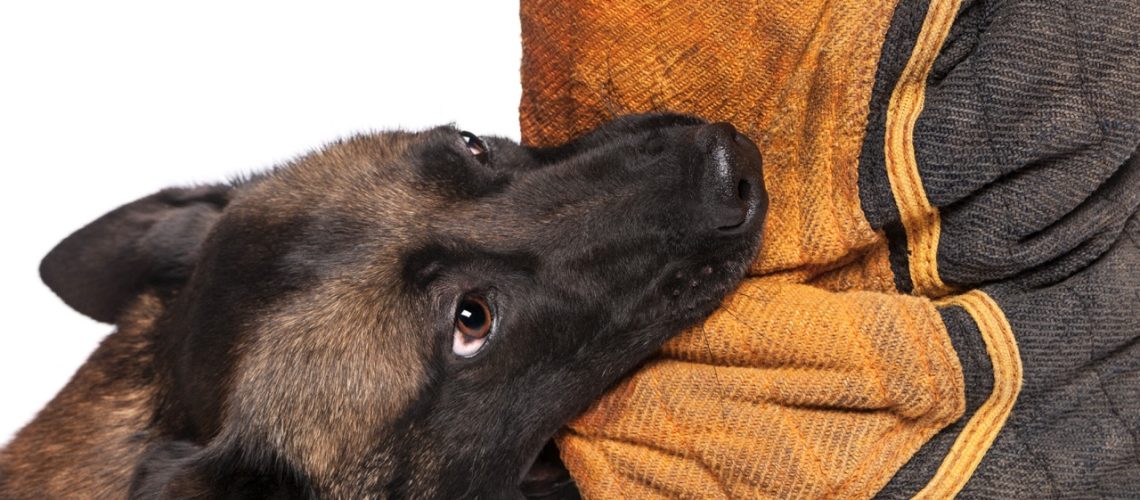Dog bite incidents are a serious concern that demands attention and action. In Arizona, promoting responsible dog ownership is necessary to prevent such incidents and ensure public safety. This article highlights the various aspects of dog bite prevention, emphasizing the importance of responsible dog ownership.
By addressing responsible pet ownership, promoting community awareness, and early socialization, we can collectively work towards reducing dog bite incidents and fostering harmonious communities.
Understanding the Impact of Dog Bite Accidents
Dog bite incidents have significant consequences, ranging from physical injuries to emotional trauma. They pose risks to public safety, affecting the victim, the dog owner, and the community. Dog bites cause several complications, including infections, rabies, and nerve or muscle damage.
The resulting damage from dog bite injuries is often extensive and excruciating, leaving victims scarred for life. In some cases, victims may even lose their sight, hearing, taste, or sense of smell.
Dog bite incidents can be traumatizing experiences that have a lasting impact on victims. At the same time, some perceive dog bites as minor incidents.
The emotional consequences can be significant and long-lasting impact varies depending on factors such as the severity of the injury, the victim’s age, and their previous experiences with dogs. Fear is the most common emotional response to dog bites, compounding the overall distress felt by the victims.
Promote responsible pet ownership to mitigate the risks associated with dog bites. Addressing dog bite incidents through responsible pet ownership protects individuals from physical harm and creates a safer environment for humans and animals.
Importance of Understanding the Role of Responsible Pet Ownership:
Responsible pet ownership is of paramount importance in preventing dog bite accidents. Proper training and socialization are essential to help dogs become well-adjusted members of society. It includes teaching them basic commands, proper leash etiquette, and appropriate behavior around people and other animals. Socializing your dog from a young age can help them become comfortable and friendly in various situations.
Early Socialization Milestones and Training Techniques
| Age (in weeks) | Socialization Milestones | Recommended Training Techniques |
| 4-8 | Positive exposure to humans | Basic obedience (sit, stay, come) |
| 8-12 | Introducing new environments | Leash walking, name recognition |
| 12-16 | Interaction with other dogs | Recall training, basic commands |
In addition to training, responsible pet ownership involves taking preventive measures to avoid potential risks.
Keeping your dog securely fenced in or on a leash in public areas helps prevent them from approaching or harming others. Regular veterinary care, including vaccinations and preventative measures against parasites, is also essential for maintaining your dog’s health and minimizing any potential risks it may pose to others.
Owners must recognize the importance of providing their dogs with adequate care and sustenance.
It includes a balanced diet, fresh water, and regular exercise to stimulate them physically and mentally. Dogs that receive proper care are less likely to exhibit aggressive or territorial behavior, reducing the risk of dog bites.
Furthermore, responsible pet owners are always aware of their dog’s behavior and understand their triggers.
They Prevent situations that could lead to dog bite accidents, such as proper supervision and control. They take immediate responsibility for any damage or harm caused by their pets. If they observe any unusual changes in their dogs, they address behavioral issues and seek professional help.

Lifelong Commitment and Continuous Responsibility:
Pet ownership is a lifelong commitment that requires dedication and continuous responsibility.
It is not just about providing the basics but ensuring your pet has a happy and fulfilling life. It involves creating a safe and loving environment, offering mental and physical stimulation, and promptly addressing health or behavioral issues.
What is the Role of Education in Promoting Responsible Dog Ownership?
Education is vital in promoting responsible pet ownership and preventing dog bites. Educating adults and children on bite prevention is paramount while emphasizing the importance of responsible dog ownership. Understanding dog body language is a key aspect that helps individuals of all ages avoid being bitten.
Recent research by Nottingham Trent University (NTU) has highlighted the significance of responsible dog ownership in reducing dog attacks. The study, published on June 10, 2022, involved collaboration with the police, local authorities, animal welfare organizations, and dog walkers.
It emphasized that many dog attacks can be prevented through proper socialization of dogs, teaching them appropriate behaviors, and ensuring owners are aware of potential problems that may arise in certain situations or if dogs are handled inappropriately.
By providing comprehensive information on dog behavior, body language, and appropriate training techniques, educational initiatives empower dog owners to understand and meet their pets’ needs. In Arizona, various programs and resources are available to foster responsible pet ownership.
Community-based dog training programs and educational materials offered by the Local Animal Control Department are resources that aim to educate dog owners about responsible practices and equip them with the necessary tools to prevent dog bite accidents.
Educating dog owners and the general public can create a safer environment where individuals understand how to interact with dogs and prevent potential K9 aggression. Promoting responsible pet ownership through education is essential in reducing dog bites and ensuring the well-being of humans and animals.
How do Training and Positive Reinforcement Techniques Help Develop a Dog’s Behaviors?
Early socialization and obedience training practices help dogs develop positive behaviors, effective communication skills, and confidence in varying situations. We can significantly reduce the risk of aggressive behavior and dog bite accidents by focusing on early socialization, obedience training, and positive reinforcement techniques.
Socialization
Socialization is the process of adapting dogs to new people, animals, and environments in a positive and controlled manner. It should begin during the critical developmental period when puppies are most receptive to learning and adapting to new experiences.
Through well-planned socialization activities, puppies can learn to be comfortable, confident, and non-reactive in different situations. Positive interactions with a diverse range of people and animals help them develop appropriate social skills, reducing the likelihood of fear or aggression later in life.
Obedience
Obedience training is another crucial aspect of responsible pet ownership.
It teaches dogs basic commands such as sit, stay, come, and heel. Obedience training enhances the dog’s ability to understand and respond to its owner’s instructions, promoting effective communication and control. Dogs that receive proper obedience training are likely to exhibit respectful and predictable behavior, reducing the risk of miscommunication or situations that may lead to aggression.
Positive reinforcement techniques
Positive reinforcement techniques are integral to both socialization and obedience training. Instead of punishing undesirable behavior, positive reinforcement focuses on rewarding good behavior with treats, praise, or other forms of positive reinforcement.
This approach strengthens the bond between the dog and its owner, encourages desirable behavior, and helps the dog understand the expectations placed upon them. Using positive reinforcement, dogs learn to associate good behavior with rewards, creating a positive and cooperative dynamic between the owner and the dog.
By exposing puppies to various stimuli, experiences, and social interactions during their critical developmental period, we help them become well-adjusted and confident dogs. Obedience training and positive reinforcement techniques enhance their communication skills and reinforce desirable behaviors.
Through these proactive measures, we can promote responsible pet ownership, reduce aggressive behavior, and create safer environments for dogs and humans.
How do responsible dog breeding practices prevent aggressive behavior and dog bites?
Responsible dog breeding practices significantly prevent aggressive behavior and reduce the risk of dog bites. Breeders should prioritize responsible breeding practices, including proper breed selection, health testing, and ethical breeding standards.
The American Kennel Club (AKC) provides guidelines for responsible breeders to ensure the well-being and temperament of the dogs they produce. Genetic health testing also helps identify potential hereditary issues contributing to aggressive behavior. In Arizona, specific training programs are available to address breed-specific issues and promote responsible ownership.
Arizona Working Dogs:
This institute specializes in training working breeds such as German Shepherds, Belgian Malinois, and Dutch Shepherds for personal protection, law enforcement, and search and rescue tasks. This institute provides comprehensive training to dogs and their owners and ensures responsible ownership practices, including proper control and management of these powerful breeds, are followed.
K9 Guidance to Inclusion:
This organization offers breed-specific training programs for Pit Bulls and other bully breeds. They focus on positive reinforcement techniques, behavior modification, and socialization to combat breed discrimination and promote responsible ownership. They educate owners about responsible dog handling, understanding breed characteristics, and promoting positive interactions with their dogs.
Arizona Bird Dog Training:
This training program is designed specifically for hunting and retrieving breeds, aiming to develop their skills as proficient bird hunters and retrievers. By teaching proper hunting techniques, obedience, and control, they promote responsible ownership in the context of these specific breeds.
They emphasize the importance of safety, ethical hunting practices, and responsible dog handling during hunting activities.
Additionally, regardless of breed, responsible ownership and training practices are essential for all dogs. Being a responsible owner provides a loving home, proper socialization, consistent training, and meeting your pet’s physical and emotional needs is your foremost duty.
It is important to note that responsible ownership and training practices are essential regardless of a dog’s breed, as any dog can exhibit aggressive behavior if not properly cared for.
Significance of Proper Enclosure and Adherence to Leash Laws
Properly enclosing dogs within secure fences and adhering to leash laws are essential for responsible pet ownership. These are vital in promoting a safe environment and preventing dog bites in Arizona. Keeping dogs in secure enclosures is a must, restricting their freedom to roam and reducing the likelihood of encountering unfamiliar individuals or other animals.
In public spaces, dog owners are responsible for complying with leash laws to ensure the safety of others.
These leash laws may vary based on a specific city or country ordinances and should be diligently followed. By taking these measures, including securely enclosing dogs and leashing them in public areas, the risks of dog bite incidents can be significantly mitigated.
Role of Community Awareness and Reporting
Community awareness and reporting mechanisms are critical in addressing potential dog bite risks.
Neighbors can work together to identify and address potentially dangerous situations by engaging the community and promoting responsible pet ownership practices. Reporting aggressive behavior or neglect to local authorities, such as law enforcement agencies and animal control departments, is essential.
These reports help identify high-risk situations and allow appropriate interventions to be implemented. Additionally, community-based dog bite prevention campaigns can raise awareness and educate the public about responsible ownership practices, reducing the likelihood of dog bite incidents.
In situations requiring legal assistance, The Sorenson Law Firm is an invaluable resource with over 40 years of combined experience representing clients in various personal injury cases. Specializing in animal injury cases in Arizona, Our team of skilled attorneys can offer tailored guidance and unwavering support throughout the legal process.
Educating Children for Safe Interactions
Teaching children about dog safety and responsible interactions is paramount to preventing dog bite incidents.
Children are often the most vulnerable, as they may not understand the potential risks and may unknowingly provoke a dog’s aggressive behavior. Educating children about safe approaches, recognizing warning signs of aggression, and fostering empathy and respect for animals can reduce dog bites.
Organizations like the Humane Society of the United States provide resources and programs to educate children and parents about dog safety and responsible interactions.
In the end preventing dog bites and promoting public safety requires a comprehensive approach that begins with responsible dog ownership.
Arizona can significantly reduce dog bite accidents by addressing the significance of responsible pet ownership, promoting education, early socialization, responsible breeding practices, adherence to leash laws, community awareness, and teaching children about dog safety.
We can create a safer environment for humans and dogs through collective efforts and a commitment to responsible dog ownership, fostering a harmonious coexistence within our communities.








